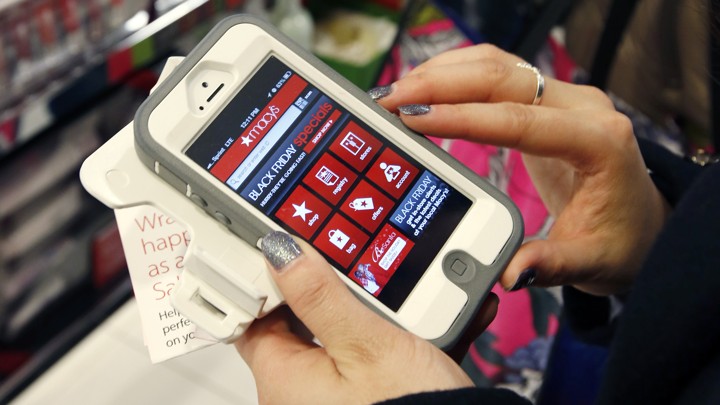mobile
Fortnite Maker Wants to Sell More Games and Build a Platform to Do It

Epic Games wants to change the way people buy video games, but it faces the dominance of Steam, the primary destination for online game purchases.
Source: The New York Times
WeWork: Is There Any There There?

For a hipster office-rental company with a chillax mood and kombucha on tap, the vibe around WeWork these days has gotten pretty gnarly. Is the I.P.O. filing by the We Company, the parent of WeWork, a “masterpiece of obfuscation,” as one savvy Wall Street analyst said this week, a thumbs-down sentiment that is shared by many others?
Source: The New York Times
How Internet Slang Makes People Better Writers

In her new book, Because Internet: Understanding the New Rules of Language, Gretchen McCulloch challenges the idea that the rise of informal writing signals a trend toward global idiocy. Instead, she marks it as an inevitable and necessary “disruption” in the way human beings communicate. “We no longer accept that writing must be lifeless, that it can only convey our tone of voice roughly and imprecisely, or that nuanced writing is the exclusive domain of professionals,” McCulloch argues. “We’re creating new rules for typographical tone of voice. Not the kind of rules that are imposed from on high, but the kind of rules that emerge from the collective practice of a couple billion social monkeys — rules that enliven our social interactions.”
Souorce: The Atlantic
In New Facebook Effort, Humans Will Help Curate Your News Stories

The Silicon Valley company said that journalists would help curate News Tab, a new section inside of the company’s mobile application that will surface the most recent and relevant stories for readers. Facebook said it planned to hire seasoned journalists from various outlets for the roles and would put up job postings on its employment board on Tuesday. News Tab is part of the company’s effort to highlight real-time journalism and news. It will exist outside of the News Feed, Facebook’s never-ending stream of status updates and friend requests.
Source: The New York Times
Something You Don’t Want to Hear About Earbuds

Hearing loss isn’t just the stuff of senior citizens: 1 in 5 teens will experience hearing loss — a rate that’s 30% higher than it was 20 years ago. You know what wasn’t around 20 years ago? Earbuds. At maximum volume, earbuds and AirPods can be as loud as 110 decibels, which is the equivalent of someone shouting directly into your ear. According to the CDC, being exposed to 85 decibels over a prolonged period, or repeatedly, puts you at risk of hearing damage. If you’re listening to your earbuds at the maximum volume of 110 decibels, you’re at risk of hearing loss after just five minutes — barely the length of two songs.
Source: Medium
Depop Is Gen Z’s Favorite Shopping App
![]()
Depop is a sales platform for the secondhand, an impossibly enormous international flea market in app form. If eBay is a bazaar and Instagram is a beauty pageant, Depop is both. Just about anything you can shoot with your iPhone camera you can sell on Depop, so there’s Polaroid film and skateboards and a 1978 Garfield alarm clock and God knows what else, but mostly there are secondhand clothes and accessories, a digital thrift haul exploding out of its users’ literal closets.
Source: The Cut
When students get stuck, Socratic can help

In building educational resources for teachers and students, we’ve [Google] spent a lot of time talking to them about challenges they face and how we can help. We’ve heard that students often get “stuck” while studying. When they have questions in the classroom, a teacher can quickly clarify—but it’s frustrating for students who spend hours trying to find answers while studying on their own. Socratic, a mobile learning app we acquired last year, now uses AI technology to help high school and university students when they’re doing school work outside the classroom. It guides them through the resources that are available, and identifies the core underlying concepts that will lead them to answers to their questions.
Source: Google
How Dark Patterns Online Manipulate Shoppers
.
Dark patterns are the often unseen web-design choices that trick users into handing over more time, money, or attention than they realize. A team of Princeton researchers is cataloging these deceptive techniques, using data pulled from 11,000 shopping sites, to identify 15 ways sites subtly game our cognition to control us. The research builds on the work of Harry Brignull, a London-based cognitive scientist who coined the term dark pattern in 2010, and the authors Richard Thaler and Cass Sunstein, whose work on “nudges” explores how default options influence behavior. Just over one in 10 websites contain at least one type of dark pattern, the Princeton research finds. The more popular the site, the more likely it has at least one.
Source: The Atlantic
Cashless Stores Alienate Customers in the Name of Efficiency

Almost 1 in 4 US consumers (which equates to 32.6 million households) are unbanked or underbanked. That means these people either have no access to banking products like credit and debit cards, or must pay exorbitant fees to use instruments like prepaid debit cards. (It seems counterintuitive, but the highest fees in the banking and credit industries are charged to those who can least afford them.) Denying these individuals access to basic products and services based solely on payment method borders on discriminatory. It’s one thing for luxury brands to self-select their customers on the basis of price point, but it’s another for a retailer to deny access to a person trying to buy a pack of gum.
Source: Wired
The techlash has come to Stanford

The dream of starting a company in your dorm room to solve the world’s problems and make billions in the process is still thriving on campus. But a competing dream, perhaps just as old, appears to be growing in fervor now, too: to use technical skills as an insurance policy against dystopia. Students have not failed to notice the unflattering headlines that have dogged Silicon Valley over the past several years—the seemingly unending scandals in which the biggest technology companies in the world have mishandled user data, facilitated the spread of misinformation, and sold software to the agencies enforcing the Trump administration’s harsh immigration agenda. All of this has sparked new conversations inside and outside the classroom, and there are signs that the once-reliable pipeline between Stanford and Silicon Valley is narrowing—at least a tiny bit.
Source: Slate
These startups aim to smash Apple and Google’s smartphone duopoly

For years, the devices and services we use have ever more aggressively monitored our activities and mined our data. But as consumers have grown increasingly attuned to privacy concerns, solutions have been appearing to help them evade tracking. Browsers such as Brave and search engines such as DuckDuckGo play up their privacy-first design. When it comes to the dominant mobile operating systems, Google has talked about preserving privacy by providing more transparency and exposing opt-out controls. Apple, on the other hand, has sought to create services that remove the opt-out requirement by not collecting data in the first place, turning privacy preservation into a key differentiator.
Source: Fast Company
How TikTok Is Rewriting the World
TikTok can feel, to an American audience, a bit like a greatest hits compilation, featuring only the most engaging elements and experiences of its predecessors. This is true, to a point. But TikTok — known as Douyin in China, where its parent company is based — must also be understood as one of the most popular of many short-video-sharing apps in that country. This is a landscape that evolved both alongside and at arm’s length from the American tech industry — Instagram, for example, is banned in China.
Under the hood, TikTok is a fundamentally different app than American users have used before. It may look and feel like its friend-feed-centric peers, and you can follow and be followed; of course there are hugely popular “stars,” many cultivated by the company itself. There’s messaging. Users can and do use it like any other social app. But the various aesthetic and functional similarities to Vine or Snapchat or Instagram belie a core difference: TikTok is more machine than man. In this way, it’s from the future — or at least a future. And it has some messages for us.
Skin sensors are the future of health care

Thin, soft electronic systems that stick onto skin are beginning to transform health care. Millions of early versions1 of sensors, computers and transmitters woven into flexible films, patches, bandages or tattoos are being deployed in dozens of trials in neurology applications alone; and their numbers growing rapidly. Within a decade, many people will wear such sensors all the time. The data they collect will be fed into machine-learning algorithms to monitor vital signs, spot abnormalities and track treatments.
Source: Nature
Most of the Google Walkout Organizers Have Left the Company

Four of the seven Google employees who organized a 20,000-person walkout in November have resigned from the company, including two women who claimed Google retaliated against them for their internal activism. The latest to leave is Meredith Whittaker, who ran Google Open Research and has emerged in the past couple of years as a prominent voice demanding increased accountability from tech companies around uses of artificial intelligence.
Source: Wired
On TikTok, Teens Meme Life360, the Safety App Ruining Their Summer
Spend enough time on the social media app TikTok, and you’re bound to see a Life360 meme. That’s because Life360, a location-sharing app aimed at families, is apparently ruining the lives of teenagers all across the United States. The service allows parents to track their kids’ whereabouts in real time, among other features. As one girl with long, blond hair jokes in a popular TikTok clip, it’s set her summer vacation on fire. Some of the videos have racked up hundreds of thousands of likes—in other words, they’re relatable.
Source: Wired
Now Some Families Are Hiring Coaches to Help Them Raise Phone-Free Children
Parents around the country, alarmed by the steady patter of studies around screen time, are trying to turn back time to the era before smartphones. But it’s not easy to remember what exactly things were like before smartphones. So they’re hiring professionals. A new screen-free parenting coach economy has sprung up to serve the demand. Screen consultants come into homes, schools, churches and synagogues to remind parents how people parented before.
Source: New York Times
‘Robot umpires’ debut in Atlantic League all-star game

The independent Atlantic League became the first American professional baseball league to let a computer call balls and strikes on Wednesday at its all-star game. Plate umpire Brian deBrauwere wore an earpiece connected to an iPhone in his pocket and relayed the call upon receiving it from a TrackMan computer system that uses Doppler radar.
Source: ESPN
Google employees eavesdropping, even in your living room

Google employees are systematically listening to audio files recorded by Google Home smart speakers and the Google Assistant smartphone app. Throughout the world – so also in Belgium and the Netherlands – people at Google listen to these audio files to improve Google’s search engine. VRT NWS was able to listen to more than a thousand recordings. Most of these recordings were made consciously, but Google also listens to conversations that should never have been recorded, some of which contain sensitive information.
Source: VRT NWS
Flight of the RoboBee

Going back to the time of Leonardo da Vinci, animal flight has inspired human enquiry, and we have sought to emulate nature by building machines that attempt to fly using flapping wings. In a paper in Nature, Jafferis et al. report a key step towards the emulation of insect flight with what they claim to be the lightest insect-scale aerial vehicle so far to have achieved sustained, untethered flight. Apart from the aesthetic joy of mimicking nature, flapping-wing robots have several potential advantages over the fixed-wing drones and quadcopters (four-rotor helicopters) that have become so popular in commercial and recreational applications. Flapping wings make animals and machines highly agile and manoeuvrable — for example, bats can fly with ease through basements, caves and dense forests. Moreover, flapping wings typically move with lower tip speeds than do propellers, and are therefore quieter and inflict less damage if they come into contact with people or property.
Source: Nature
In Stores, Secret Bluetooth Surveillance Tracks Your Every Move
![]()
Imagine you are shopping in your favorite grocery store. As you approach the dairy aisle, you are sent a push notification in your phone: “10 percent off your favorite yogurt! Click here to redeem your coupon.” You considered buying yogurt on your last trip to the store, but you decided against it. How did your phone know? Your smartphone was tracking you. The grocery store got your location data and paid a shadowy group of marketers to use that information to target you with ads. Recent reports have noted how companies use data gathered from cell towers, ambient Wi-Fi, and GPS. But the location data industry has a much more precise, and unobtrusive, tool: Bluetooth beacons.
Source: The New York Times